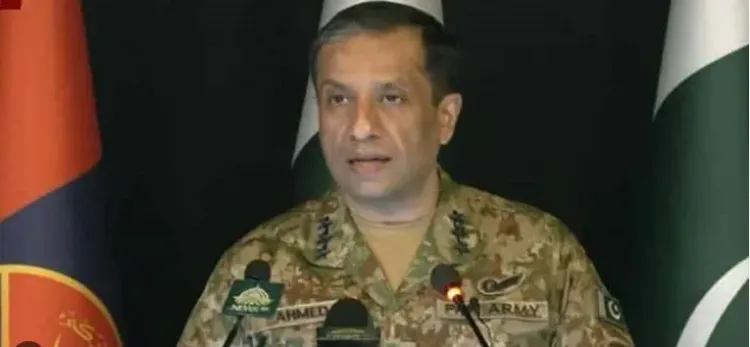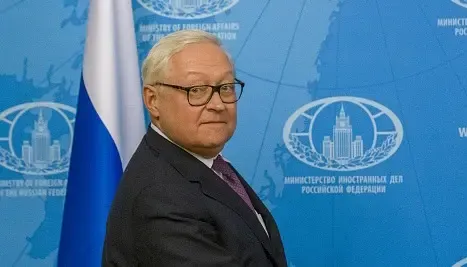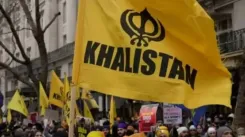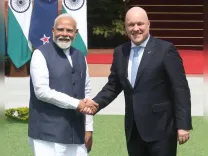Is the Pak Army Spokesman Echoing Hafiz Saeed's Warning to India Over the Indus Waters Treaty?

Synopsis
Key Takeaways
- Lieutenant General Ahmed Sharif Chaudhry issues a warning reminiscent of Hafiz Saeed's rhetoric.
- India suspended the Indus Waters Treaty following a major terror attack in Pahalgam.
- New Delhi's stance emphasizes that 'blood and water cannot flow together.'
- India's Ministry of External Affairs calls for a focus on the withdrawal of illegally occupied territory.
- Escalating tensions highlight the need for diplomatic engagement between the two nations.
Islamabad, May 23 (NationPress) The spokesperson for the Pakistani military, Lieutenant General Ahmed Sharif Chaudhry, has delivered a warning to India that echoes the sentiments expressed by Lashkar-e-Taiba (LeT) terrorist Hafiz Saeed.
During a public event, he addressed India's choice to hold the Indus Waters Treaty in abeyance until Islamabad renounces terrorism and ceases its support for terrorist groups operating from its territory.
Chaudhry reportedly made these remarks while addressing a university audience in Pakistan.
In reference to India’s recent suspension of the water-sharing treaty after a tragic terror attack in Pahalgam, Jammu and Kashmir, he stated, 'If you block our water, we will choke your breath.'
This rhetoric is reminiscent of the hostile language often used by Hafiz Saeed, who is notorious for his incendiary speeches against India and the United States, and was behind the 2008 Mumbai terror attacks.
A video circulating on social media platform X captures Hafiz Saeed making similar assertions.
These statements come after India announced the suspension of certain aspects of the Indus Waters Treaty on April 23, a day following the deadly terror incident in Pahalgam which resulted in the deaths of 26 individuals.
This treaty, established in 1960 and facilitated by the World Bank, regulates the sharing of the Indus River and its tributaries between the two nations.
Meanwhile, New Delhi has consistently stated that 'blood and water cannot flow together; talk and terror cannot coexist,' indicating a more stringent approach towards Pakistan's alleged sponsorship of cross-border terrorism.
The suspension was part of a series of counteractions against Islamabad, including 'Operation Sindoor' on May 7, targeting nine terrorist hideouts in Pakistan and Pakistan-Occupied Kashmir.
The Indian Ministry of External Affairs (MEA) announced that any future discussions with Pakistan would concentrate solely on the withdrawal of illegally occupied Indian territory in Jammu and Kashmir.
MEA spokesperson Randhir Jaiswal firmly stated that 'terror and talks cannot coexist,' reiterating that India will only engage in dialogues concerning the extradition of wanted terrorists already identified and shared with Islamabad.
Clarifying India's position on the Kashmir issue, Jaiswal emphasized, 'Any bilateral dialogue will only address the withdrawal of illegally occupied Indian territory by Pakistan.'
Regarding the suspended Indus Waters Treaty (IWT), Jaiswal confirmed that the agreement will remain inactive until Pakistan takes credible and irreversible actions to halt its support for terrorism.
He echoed Prime Minister Modi's assertion: 'Water and blood cannot flow together,' signifying a hardening of India's stance on this historic water-sharing agreement.
In a related incident, two employees of the Pakistan High Commission in New Delhi were declared ‘persona non grata’ for actions deemed incompatible with their official roles.
As Jaiswal noted, 'One has already left India, and the other was given 24 hours to do so,' highlighting the seriousness of their misconduct.
Earlier that day, Prime Minister Narendra Modi addressed a rally in Bikaner, Rajasthan, delivering a stern message to Islamabad.
He warned that Pakistan would have to 'struggle for every penny' if it continued its support for terrorism and that it would not receive India's rightful share of water under the current treaty terms.
'Playing with the blood of Indians will now cost Pakistan heavily,' PM Modi asserted.










